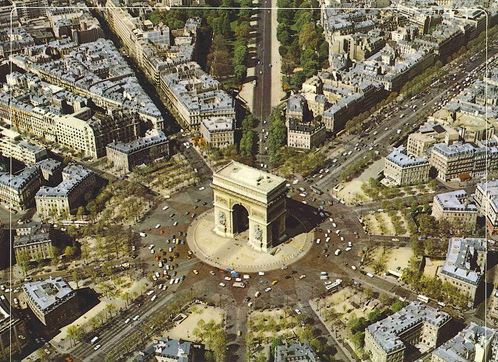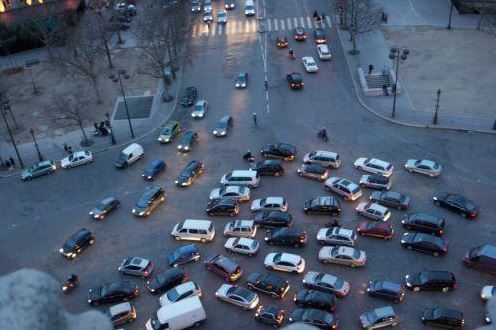…I think.
Reader TR sends me this head-scratcher:
“I must ask a question. When you refer to apartheid, you — like nearly everyone else — refers to it as an ‘evil system.’ Given what has transpired since the end of apartheid, is it appropriate to rethink that? With the chaos that South Africa has experienced as it has descended to the African mean of madness, perhaps a more appropriate viewpoint is to think that apartheid was simply a logical adaptation to the presence of a population that simply cannot support or sustain a First World standard of living, done by people who very much valued the First World society they had created.”
Let me address the several issues contained in the above. To anyone who was exposed to its machinations — let alone directly affected by it, as most South African Blacks were — apartheid was truly evil: only the absence of extermination camps differentiated it from the Nazism of the 1940s. In actuality, Blacks couldn’t live or work in “White” areas except by permit, couldn’t own businesses in White areas, couldn’t be promoted past a certain point when they did work outside the “Black” areas, and were forcibly resettled into Black “homelands” without legal redress or the ability to resist. Social intercourse between Blacks and Whites were restricted, by law, to business interactions only — any kind of interracial sexual activity was legally classified as “immorality” and summarily banned, carrying appallingly-high penalties in the breach thereof. Crimes by Whites against Blacks carried penalties far more lenient — to the extent of semi-official toleration — than those by Blacks against Whites, which were severely punished. The education system favored White children over Black children and continued throughout life — to where “White” universities were ubiquitous but “Black” universities could be counted on one hand, with a couple fingers left over. (Lest anyone is offended by the comparison to Nazism, simply substitute “Jews” for “Blacks” and “Aryans” for “Whites”. That would have been Germany, from 1933 to 1945.)
So the disappearance of apartheid cannot be seen as anything other than a Good Thing.
Now, what has replaced this abhorrent socio-political system is not good, at all; indeed, what has since happened in South Africa is typical of most African countries: massive corruption, bureaucratic inertia, inefficiency and incompetence, and a level of violence which makes Chicago’s South Side akin to a holiday resort. (For those who wish to know the attribution for much of the above, I recommend reading the chapter entitled “Caliban’s Kingdoms” in Paul Johnson’s Modern Times.) Where South Africa differs from other African countries is twofold: where in the rest of Africa the preponderance of violence and oppression was Black on Black — and therefore ignored by the West — apartheid was a system of White on Black oppression (and therefore more noticeable to Western eyes). The second difference is that apartheid exacerbated the virulence of the “grievance” culture which demands reparations (financial and otherwise) for the iniquities of apartheid. This continues to unfold, to where the homicide rate for White farmers — part of the taking of farmland from Whites — is one of the highest in the world, and the capture and conviction rates for the Black murderers among the lowest — a simple inversion of the apartheid era.
Speaking with hindsight, however, it would be charitable to suggest (as Reader TR has done) that apartheid was “simply a logical adaptation to the presence of a population that simply cannot support or sustain a First World standard of living, done by people who very much valued the First World society they had created.” While that statement is undoubtedly true, up to a point, and it could be argued that apartheid was a pragmatic solution to the chaos evident throughout the rest of Africa, it cannot be used as an excuse. Indeed, such a labeling would give, and has given rise to the notion that First World systems are inherently unjust, and a different label “colonialism” — which would include apartheid — can be applied to the entirety of Western Civilization.
The fact of the matter is that when it comes to Africa, there is no good way. First World — i.e. Western European — principles only work in a socio-political milieu in which principles such as the rule of law, free trade, non-violent transfer of political power and the Enlightenment are both understood and respected. They aren’t, anywhere in Africa, except where such adherence can be worked to temporary local advantage. Remember, in the African mindset there is no long-term thinking or consideration of consequence — which is why, for example, since White government (not just South African) has disappeared in Africa, the infrastructure continues to crumble and fail because of a systemic and one might say almost genetic indifference to its maintenance. When a government is faced with a population of which 90% is living in dire poverty and in imminent danger of starvation, that government must try to address that first, or face the prospect of violent revolution. It’s not an excusable policy, but it is understandable.
That said, there is no gain in rethinking apartheid’s malevolence, as Reader TR asks, because apartheid was never going to last anyway, and its malevolence was bound to engender a similar counter-malevolence once it disappeared. Which is the main point to my thinking on Africa: nothing works. Africa is simply a train-smash continent, where good intentions come to nought, where successful systems and ideas fail eventually, and where unsuccessful systems (e.g. Marxism) also fail, just fail more quickly.
So there’s no point in reevaluating apartheid: it was a savagely iniquitous and evil system, and the best thing that can be said about it is that it was no different to any other tribal system already in existence in Africa — except that it was loudly and proudly unapologetic about its foundation (“Blacks are genetically inferior to Whites”), its goals (“protect the White race”) and intent (“keep the races apart”).
And yes, while apartheid existed South Africa worked better as a country — roads, medical care, electricity generation and distribution, financial systems and the economy all worked well, to the envy of the rest of the continent and even outside Africa. But it was too evil a system to last, its benefits excluded too much of South Africa’s population and ultimately, its First World efficacy cannot be used to excuse it.
And many, many thanks to Reader TR for bringing up the topic.








